KICKING THE BOYS out of the house felt like turning against my own men on the battlefield. A strong element of betrayal and dishonor projected itself. Seeking redemption, I fled down the road to the bar, a dim one-story building nestled between a drug store and a meat shop. The interior flashed with new paint and light. Over bottles of Tusker and soccer, we yelled and drew blood from each other’s eyes and cheeks. Brutal jokes are like spears. I called for more beer until the boys were barely on their feet. Inebriated, they screamed Edith’s name and wished me a happy marriage. I spent the rest of the night dragging corpses along the staircases. I tucked these corpses in bed, placed bottles of cold water nearby and hoped that by morning they would have resurrected.
As soon as the sun rose and we were not headed to work, we met at Glitz Restaurant on Tom Mboya Avenue. Then we rode along Ngong road to the RFUEA grounds. After the game, we grabbed food and Tusker cans and sat on the terraces to watch under-14s. Rugby was the country’s latest show-off. New Zealand and South Africa were hard nuts to crack. Argentina and Great Britain we had thrashed.
Rugby occupied the right half of my life. As for the neglected left half, I didn’t know what was in there. Maybe there was a heart that yearned for cuddling love. I began to notice little details around the house: patterns in the Egyptian floor carpet, coffee stains on the leather sofa set, the awkward position of the eucalyptus bookshelf in the hallway, devious ghosts that chorused from invisible podiums when I returned to the house drunk—all these became visible.
Edith appeared on the scene like a gleaming rainbow on a sunny-rainy weekend afternoon. I first saw her at the RFUEA grounds. She sat there cheering after a pack of fourteen-year-olds raging into each other like sightless rhinos. The second time we met was at a bookshop along Moi Avenue. I had invited her. I noticed her short dreadlocks, ivory earrings and wedge heels. A five and a half feet figure in tight sky blue jeans and crop top. We spent an hour in the Asian Café across the street. I’d carried Mandela’s Long Walk to Freedom with me just in case. Edith’s fingers curled around the warmth of her coffee mug and I couldn’t let my eyes wander away.
*
IT’S A HABIT of my father’s to ring me on Sunday afternoons, after mass at St. Teresa’s Catholic Church. The phone buzzed like a cockroach caught in a cloud of lethal insecticide. I can picture him seated in the veranda, sipping tea as his failing eyesight crawled over weekend newspapers. I can picture him whistling to his two dogs. They rush to him with lolling tongues to lick his hands. My poor mother stands in the doorway, her mouth twisted in disgust. She reappears with father’s bruised reading glasses. She holds father’s walking stick, ready to hit the tail wagers. Sunday morning is a chaotic time in mid-town Nairobi. Everyone is hell bent on wrecking havoc. Protestant churches bomb the air with anti-Satan explosives.
The weather is neutral at the beginning of the year. Neither too hot nor too cold, like Cold War India. The sun rules the sky like a timeless king. I stand on the balcony to watch thin pieces of dirty polythene bags floating on air like slow motion parachutes. From the nearby posts, crows crow intermittently.
I woke up at around nine o’clock today. With a toothbrush still in my mouth, I dragged into the living room and switched on the TV. All I saw were gleaming suits, pointed shoes, and voices cursing the devil. Joel Osteen reached down to scoop me. Jesus allowed a prostitute to wash and dry his feet using her tears and hair. What about Rahab the whore? Wasn’t she saved too?
*
NAIROBI WAS nyama choma, Tusker and Embassy cigarettes. My boys and I popped at strip clubs and gambling halls. A quick first loss warned us against any excesses. We would settle at one end of the bar to watch smooth ebony figures moving up and down like hypnotized snakes. The fluidity of the nude ebony figures was enticing. I fantasized a leash around my neck and a kernel where more nude ebony figures pounced on me like tigresses. A thin strip of cloth ran down between their legs. It disappeared between the buttocks and reappeared just above. The vaginas were bulgy; perhaps striving to explode like volcanoes, but failing. So they kept their heads bowed instead.
We nursed our hangovers on Sunday morning. We took time to check through wallets, to stand at the window, to smoke and yawn. Ondieki would call me from his apartment five blocks away and complain about an empty wallet left open on the bedside stool. He would complain about his missing cell phone.
We would then end everything in laughter, Ondieki swearing in a coarse voice about paying the price for disobedience. We agreed that God was ruthless. His family wanted him to join the Catholic seminary. As penance, he emptied all the unused condoms from the drawers into the dustbin. He picked a camp knife and slew all the sex toys.
For Ondieki the word ‘senorita’ meant one-night-stand.
Billy said that KICC resembled a giant penis.
*
MY FATHER asked if I attended church.
I was thinking of Edith when the question hit a remote part of my brain; a chord somewhere else responded to the signal.
‘‘Yes,’’ I lied.
I still have this fear for my father, you know. His old crackly voice still terrifies me. He believes in schedules, timetables, wall calendars, graduation gowns, suits, neckties, laced shoes, gradualism, rows, obedience, punctuality, Catholicism, everything angular and neat. He is a step by step person. This does not mean he is trustworthy.
‘‘Do you know Onesmas, the first son of Wabwile, our neighbour?’’ asked my father, full of ritual detail and pauses. Everyone from my father’s village was a neighbor.
‘‘Yes,’’ I said without thinking of the consequences.
How can I not remember Onesmus, the nursery kid in oversize shirt, runny nose, teary eyes, jigger toes, ringworm circles and long dirty nails?
My head cleared in an instance, like how morning mist clears at the appearance of the tropical sun.
‘‘I will be out of town,’’ I wanted to yell at my father.
For some reason, I held back this lie. I didn’t want my father to think I was a hostile clansman. After all, I was not planning on severing ties with my birth village. That is where my relatives will bury me when I die. How could I?
I spent the afternoon slumped in the sofa. Sunday Nation newspaper sat folded beside me: Tullow Oil Discovers More Oil in Turkana. I was thinking about a crowd of mesmerized old villagers trudging up the stairway, smelling of sugarcane farms, cow dung and Jamaa bar soap, invading my tiny apartment like a lost caravan. I would not trouble myself on their behalf, I swore. I am no one’s bitch. I was a Nairobian after all. I did not know how long they were going to stay. My marital status, refrigerated food, sparkling whiteness of the apartment walls, my tiny kitchen and the large Plasma TV Screen would be items on the discussion agenda.
They arrived in neatly pressed Kaunda suits and crisp Italian suits. My new affability surprised me. So the village boy in me was still alive, eeh? I welcomed my visitors with a smile. Later, I rushed to the toilet, dipped two fingers down my throat, jerked and sighed. Nothing came. I gave up and walked back to my guests, disgusted and ashamed. Onesmus told me about the village. The circumcision season was approaching. So and so were circumcising their sons, so and so were newlywed, so and so died, so and so were hospitalized, so and so married a second wife, so and so was building a new house; it would be biggest in the village.
Occasionally, we veered our discussion to politics.
‘‘Where is your wife?’’
‘‘Do you have a wife?’’
‘‘What about kids?’’
‘‘Who cleans your house?’’
‘‘I pay someone to do it,’’ I answered.
One of my guests told me that I was growing old. He stood from his chair to touch my growing baldness. I needed a wife and kids. What if death claimed me? Who would I leave behind?
‘‘I would leave the world behind,’’ I said.
The questions got me thinking.
What right had they to interfere in my affairs? I went out to the balcony to smoke and watch city lights. The streets glittered. They beckoned. I imagined the strip clubs, cold beer bottles, ladies in red dresses and high heels.
Nairobi teaches one to be selfish. The primary school kid smoking weed downstairs isn’t your business. The neighbor battering his wife isn’t your business. University students playing deafening music next-door isn’t your business. Don’t greet that pretty lady who comes out of her house half naked to stare at you from the upper balcony. Don’t get carried away by the college girls who use transparent curtains to let you see them walking in bikinis, throwing their amorous eyes at you.
I thought about Edith, that moment at the café when her fingers curled around the coffee mug.
I yelled at Onesmus. ‘‘What the hell is wrong with you?’’
‘‘Me?’’
‘‘This is my house, remember?’’
Silence—
I can’t think about Onesmus without mustering pity for him. We grew up together herding cattle by the riverside. His biggest problem was that he always courted trouble. His inflammatory tongue provoked fights. Perhaps it is this burden of childhood defeats that he relates back to. It is all such nonsense.
Isn’t all these bullshit?
My guests went back to the village. I sat on the sofa sniffing the air for traces of the caravan. I thought about Onesmus’ fiancé, cinnamon-skinned, bold-eyed and lively. I thought about Edith, that moment at the café when her fingers curled around the coffee mug. I thought about my poor father.
Edith had spent a few nights at my place. She is of my tribe. My father would have no problem whatsoever welcoming her into our family. Edith is well schooled, surpassing the standards my father had set for me. She has a well paying daytime job with an insurance firm in the city.
I picked Edith for Mwaniki’s Lounge. I waited for her to press the button but she never got around to doing it. ‘‘Have you ever thought of us getting married?’’ I asked, breaking my fingers and reaching for my cup. I gulped down the warm liquid. It hit my throat, slowed and settled at the base of my vibrating stomach, like a trail of obedient disciples.
Mandela’s god-eyes stared at me from the adjacent wall. Words slid over my tongue and scampered. I realized that I was standing on a cliff. With a jerk, I took two steps back. I breathed in, out, in, out. I was almost floating on a swamp. My mind calmed, the cliff disappeared and there was no sign of danger. The ground was meadow clear. I was ready for Edith’s reply.
‘‘Why?’’
I had not thought about it.
The cliff reappeared. I was losing balance. I feared that my head would hit the rocks at free-fall speed then everything would spill out. The hot sun will burn the spillage into tiny frizzled balls. Then the floods would whoosh everything away. No traces, no evidence, no history.
‘‘I don’t know,’’ I said.
This was an honest answer.
I shut my eyes. I was chanting, trying to wish the deadly cliff away. I opened my eyes and the cliff was nearer, deeper, the rocks sharper, the gravity more magnetic. I was about to let out a mournful cry when Edith stopped me. ‘‘Yes,’’ she said.
It was my father’s tongue inside my head that spoke. The cliff had terrified me. I was shaking, death had come so near. Was this a conspiracy on the part of my father and Edith, to scare me, to scuttle me, to make me a nonentity? In a blink of an eye, the cliff filled with gravel. The meadow grew back; the grass, the butterflies, the little flowers, the insects. The world was a safe place again.
That day at the bar I didn’t mention anything to do with cliffs or meadows. We drove in Billy’s car to Simba Club. We drunk and smoked silly. But I couldn’t bring myself to seeing them as ‘my boys’ anymore.
Edith invaded the universe and changed the elements. The walls sung new tunes, the floor trembled to a new rhythm, haunting presences disappeared, and ordinary things like the furniture took on a mystery that exceeded their physical forms. The sun cut through the night and when we woke up in the morning, the moon was rising in the East. With her, I became an infant. I relearned how to make mistakes, how to accept punishments, how to be loyal—something I thought I was incapable of. The majesty of her presence freed me from imperfections. Nairobi became a new place for me. I thought of nothing else but Edith’s magic, her stories, her songs, our pregnancy.
‘‘I think I am married,’’ I blurted out.
She smiled at me, ‘‘You think?’’
‘‘I know.’’
I wondered if that was the texture of my life. I could not help but think. She kicked the air around the house. I heard the squeal of old ghosts, running out of breath and gasping on the ground, dying. She was a tough kicker, maybe even better than me. I did not know what ‘my boys’ would think of her kicking. She kicked everything into silence.
Someone knocked at the door. I had been rubbing Edith’s ankles with a warm towel. When I went to open the door, I saw that it was Ondieki and Sankara. It baffled me when Edith sprung up to fetch beer from the fridge.
‘‘I will be driving Edith home,’’ I announced after half an hour, ‘‘my Father has been screaming like a little girl in the village. He wants to see his daughter-in-law.’’
‘‘Fucking fly half,’’ Sankara purred, ‘‘I never wanted to be a winger.’’
Edith was laughing.
‘‘Nairobi is your home. Maybe it’s the only home you’ve got,’’ yelled Ondieki, ‘‘your old man should come over. Edith is in no condition to do five hundred kilometers.’’
ON 17th APRIL 2016, Kenya won the HSBC World Rugby Sevens Series Cup in Singapore. Our shujaas kicked the Oceanic boys hard on the ass.
**************
Post image by Jess Jaxn via Flickr.
About the Author:
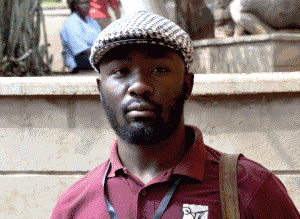 Wanjala Njalale has published poems online. His first short story, ‘‘This Plot Is Not For Sale,’’ was published by the East African Magazine in March 2016. The Writer is working on a debut collection of short stories.
Wanjala Njalale has published poems online. His first short story, ‘‘This Plot Is Not For Sale,’’ was published by the East African Magazine in March 2016. The Writer is working on a debut collection of short stories.


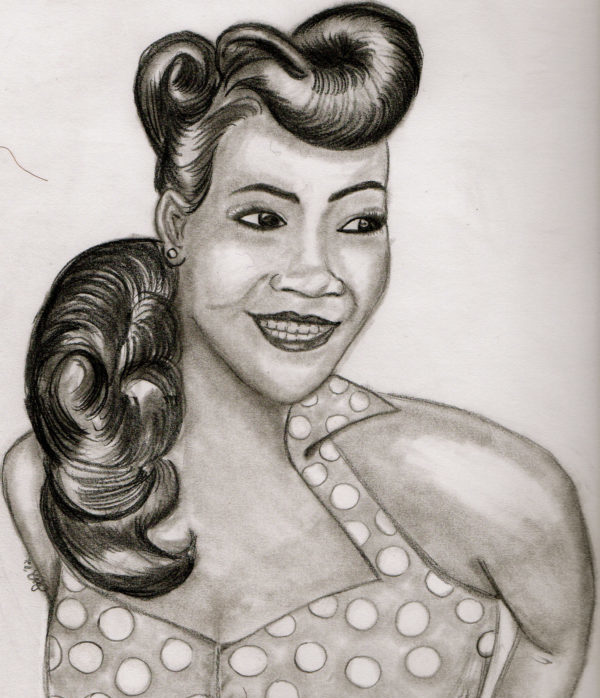
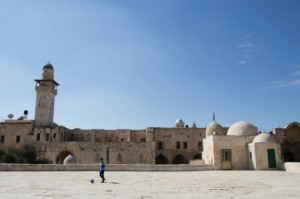
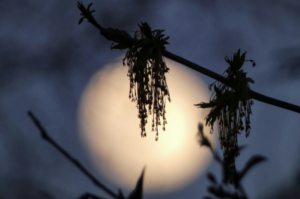
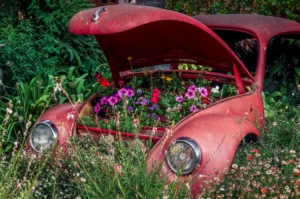
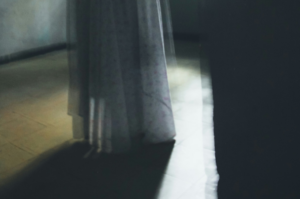



Simiyu Samuel Misiko January 19, 2017 15:01
Good work my brother, I'm proud of your work, can't imagine we're from same neighborhood